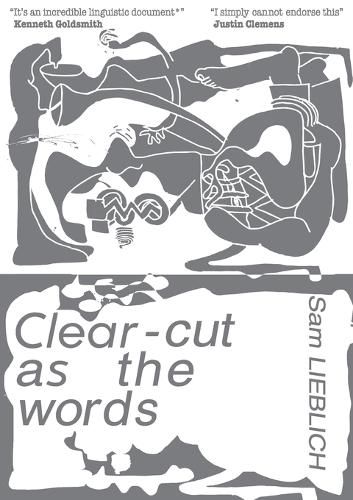Readings Newsletter
Become a Readings Member to make your shopping experience even easier.
Sign in or sign up for free!
You’re not far away from qualifying for FREE standard shipping within Australia
You’ve qualified for FREE standard shipping within Australia
The cart is loading…






This title is printed to order. This book may have been self-published. If so, we cannot guarantee the quality of the content. In the main most books will have gone through the editing process however some may not. We therefore suggest that you be aware of this before ordering this book. If in doubt check either the author or publisher’s details as we are unable to accept any returns unless they are faulty. Please contact us if you have any questions.
Clear-cut as the words is a 'novel' written in a unique process of artificially intelligent conservation and destruction. The algorithm givethm and the algorithm takethm away. If you enjoy the writing of W.G. Sebald, Eric Newby, Leo Tolstoy, Erich Maria Remarque, Svetlana Alexievich, F. Scott Fitzgerald, Jordan Peterson, Amos Oz, or Loren Eiseley then you will probably hate this 'novel'.
As much as it is a cautionary tale of what not to do with AI it is also the story of a second-generation migrant's son who visits his mother's nursing home for one last parting visit against his mother's wishes. As she nears the end of her life, she starts to recall bits and pieces of her early years, which had been kept secret until then and included experiences throughout both World Wars and unspeakable tragedies. Having lost his wife and kid and feeling abandoned, the son takes solace in his uncomfortable but strongly felt connection to the nurse who cares for his mother.
Memory and inter-generational trauma are explored in depth, as well as the impact that a long-kept secret may have on the present, in this thought-provoking tome. An algorithm-aided ambiguity and compassion concerning guilt and forgiveness, filial ties, moral issues, care and agency, knowledge and generational repetitions are the hallmarks of 'Lieblich's' 'writing' in this book. This 'novel' is also a tale of love and an examination of complicated end-of-life concerns.
$9.00 standard shipping within Australia
FREE standard shipping within Australia for orders over $100.00
Express & International shipping calculated at checkout
This title is printed to order. This book may have been self-published. If so, we cannot guarantee the quality of the content. In the main most books will have gone through the editing process however some may not. We therefore suggest that you be aware of this before ordering this book. If in doubt check either the author or publisher’s details as we are unable to accept any returns unless they are faulty. Please contact us if you have any questions.
Clear-cut as the words is a 'novel' written in a unique process of artificially intelligent conservation and destruction. The algorithm givethm and the algorithm takethm away. If you enjoy the writing of W.G. Sebald, Eric Newby, Leo Tolstoy, Erich Maria Remarque, Svetlana Alexievich, F. Scott Fitzgerald, Jordan Peterson, Amos Oz, or Loren Eiseley then you will probably hate this 'novel'.
As much as it is a cautionary tale of what not to do with AI it is also the story of a second-generation migrant's son who visits his mother's nursing home for one last parting visit against his mother's wishes. As she nears the end of her life, she starts to recall bits and pieces of her early years, which had been kept secret until then and included experiences throughout both World Wars and unspeakable tragedies. Having lost his wife and kid and feeling abandoned, the son takes solace in his uncomfortable but strongly felt connection to the nurse who cares for his mother.
Memory and inter-generational trauma are explored in depth, as well as the impact that a long-kept secret may have on the present, in this thought-provoking tome. An algorithm-aided ambiguity and compassion concerning guilt and forgiveness, filial ties, moral issues, care and agency, knowledge and generational repetitions are the hallmarks of 'Lieblich's' 'writing' in this book. This 'novel' is also a tale of love and an examination of complicated end-of-life concerns.